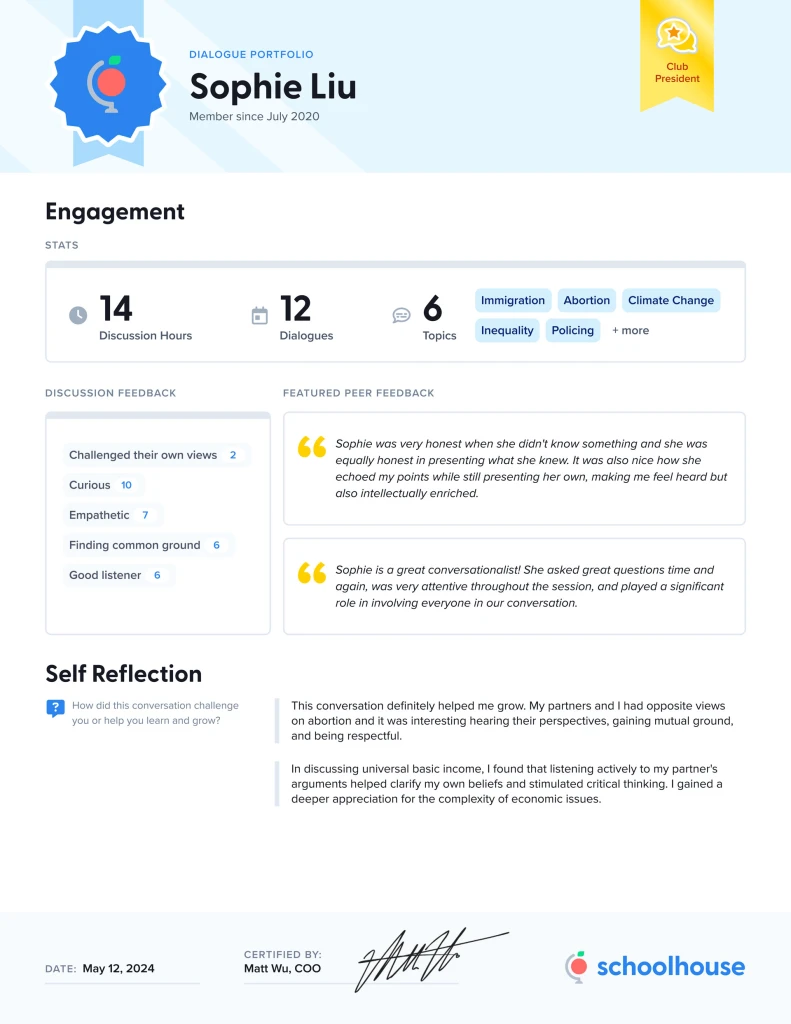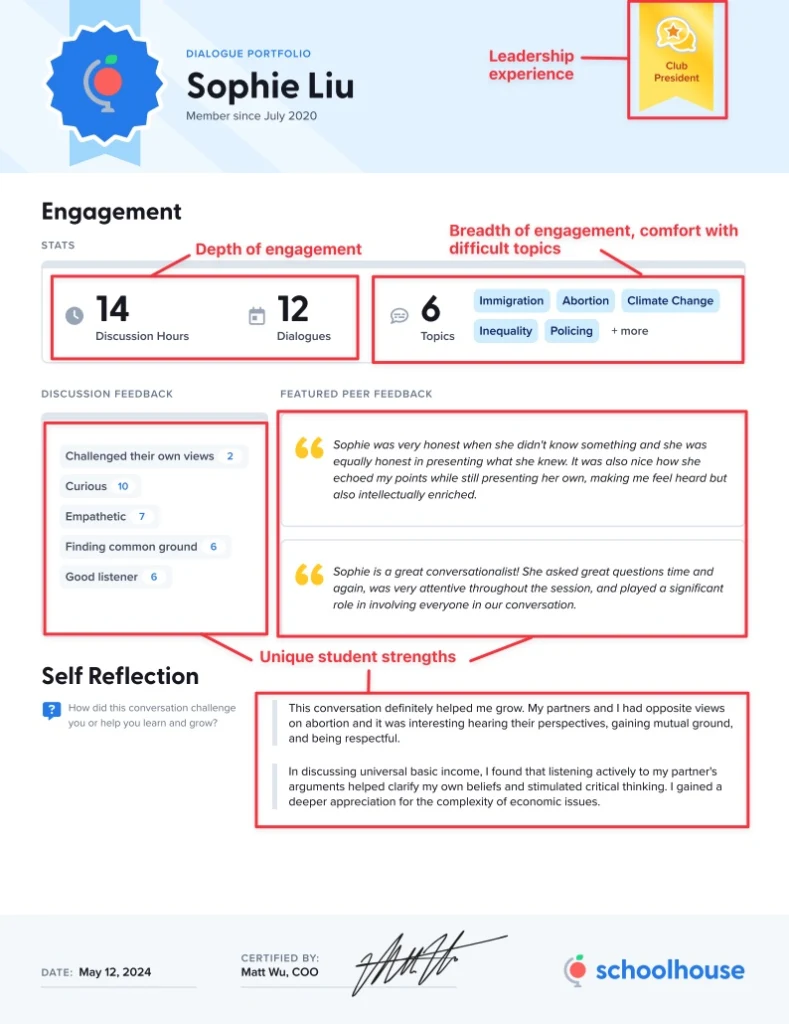In recent years, Khan Academy founder Sal Khan has been most visible promoting the organization’s AI learning assistant, Khanmigo. But a second nonprofit he founded, called Schoolhouse, focuses on connecting students with their peers for human-centered educational interactions. Since the height of the COVID-19 pandemic, Schoolhouse has connected students with trained and certified volunteer tutors, often around their own age, who help them understand a variety of academic subjects. Now, through a pilot with the College Board, these tutors also help students prepare for the SATs.
“It was a very utopian idea that frankly a lot of people were very skeptical of—that you could attract volunteers, and vet them, and train them, and give high-quality tutoring at scale for free to other folks,” says Khan, who is also CEO of Schoolhouse. “But we built that first prototype, summer of 2020, right in the middle of the pandemic, and it worked.”
As of Tuesday, Schoolhouse is publicly launching a new program called Dialogues, which connects students aged 14 to 18 via Zoom to respectfully discuss a variety of often-controversial cultural and political topics. Developed with experts in civil discourse, the program offers students discussion guides on subjects like immigration, gun control, climate change, universal basic income, and artificial intelligence. Ultimately, though, it relies on students to engage respectfully and learn from one another.
“It’s not a debate,” Khan says. “You don’t have to convince the other person, but you do want to be able to give your point of view in a thoughtful way, and you want to be able to listen and be able to understand the other side’s point of view.”
During sessions, students are identified only by their first names and last initials. While video is optional, Schoolhouse reports that about 75% of students in the pilot opted to keep their cameras on. After each conversation, students complete surveys reflecting on their experiences. Dialogues offer not only insights into differing perspectives but also teach students how to maintain respectful, productive conversations.
“I often end up being the one who sort of leads the question, as in answers first,” says Claire, a participant in the program. (Schoolhouse requested that Fast Company only identify student participants by their first names, in keeping with Dialogues’ privacy practices.) “And I’ve learned how to do that in a way where I’m not running over the other people—where we really share our own different thoughts, and we dig a little bit deeper.”

More than 600 students have participated in the pilot phase, holding over 2,000 Dialogue sessions. Participants can also start Dialogues clubs through Schoolhouse to help organize sessions. “It’s our dream that one day, Dialogue Clubs will be just as common as Debate Clubs,” Khan wrote in a blog post. Students can also receive official portfolios from Schoolhouse documenting their participation and peer feedback.
By connecting students across geographic regions, Dialogues expose them to viewpoints and ideas they may not encounter in their everyday lives.

“In my daily life, I really thought I met a lot of different people, and I was kind of tapped in with a bunch of different areas of the community,” says David, a participant. “But once you go into Dialogues, you realize that there’s a lot more breadth to the world around you.”
Zoom offers a more intimate, one-on-one setting than typical internet message boards—without the cost and complexity of travel.
“We had two American students talking to two Chinese students in China about free speech,” Khan says. “I don’t know how you pull that off in person without some super-expensive exchange program.”
Several colleges—including the University of Chicago, Johns Hopkins University, MIT, Vanderbilt University, Columbia University, Colby College, Northwestern University, and Washington University in St. Louis—have said they will officially consider Dialogues portfolios as part of admissions applications. Students who volunteer to tutor through Schoolhouse can also build similar portfolios.
Khan says his team has, with student permission, shared transcripts and recordings of Dialogues with school officials to help them understand the program, and the response has been positive.
“Their consensus is, this is incredible,” he says. “Like, these are kids that we would want to accept.”
